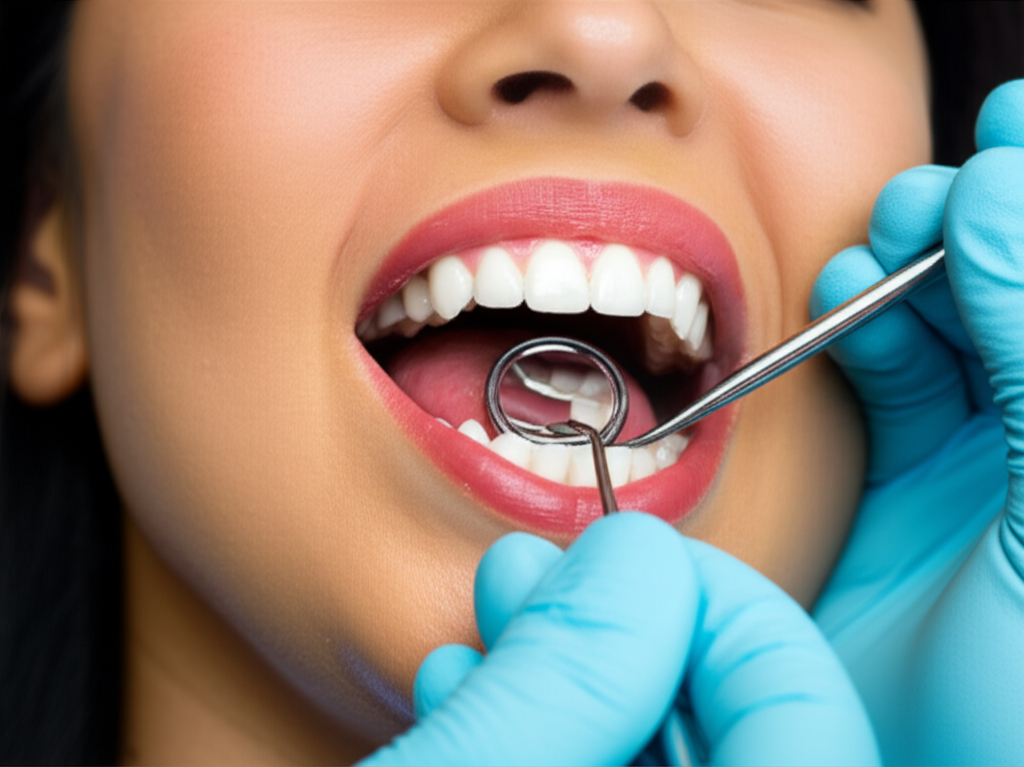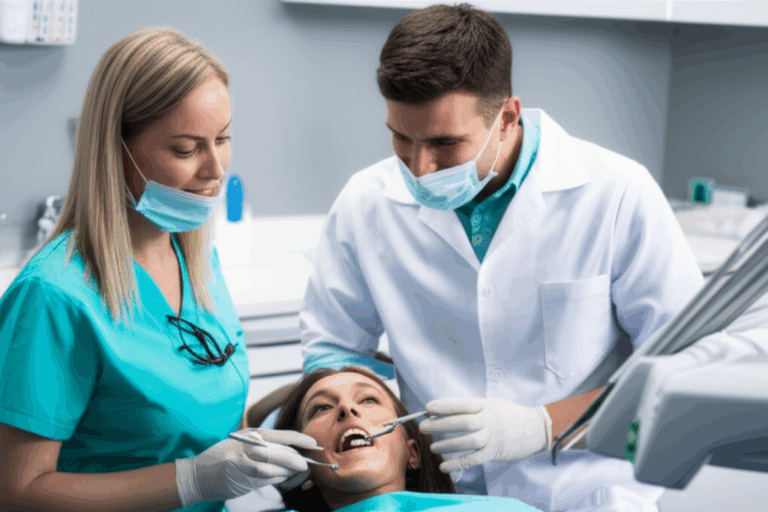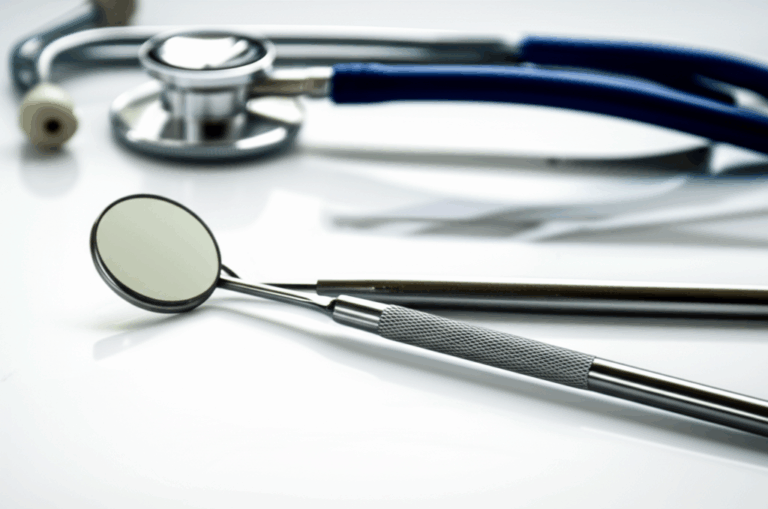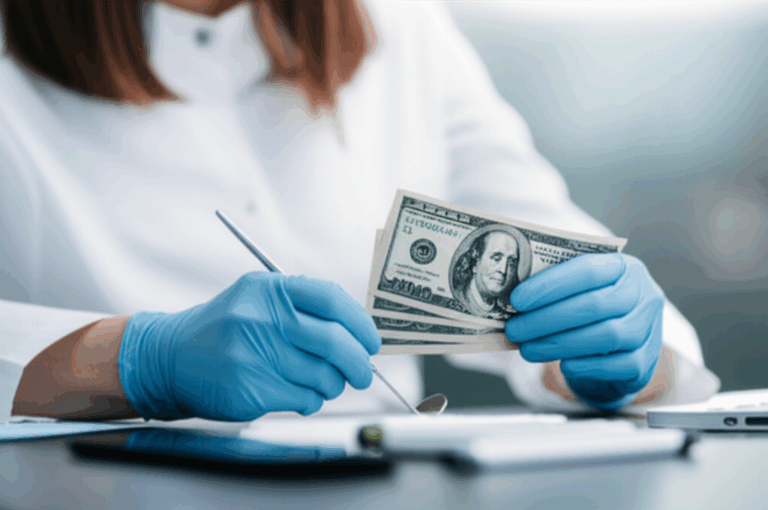
How Valid Are Dentist Checks for Oral Cancer? Unpacking Their Effectiveness
Oral cancer can be scary, but finding it early can save your life. This article explains how good a dentist’s check for oral cancer really is, what the screening looks like, and why it matters for you. We’ll break things down into simple words, so you know what to expect when you sit in the dentist’s chair—and you’ll see why dentist checks aren’t just the usual thing. They’re super important. If you want peace of mind about your mouth health, this read is worth your time.
Table of Contents
1. Introduction: Why Should You Care About Oral Cancer Checks?
Most people think going to the dentist is just for cleanings, fillings, or a new crown. But there’s a really important part of the checkup: the oral cancer check. Oral cancer affects thousands of people every year. If it’s found early, your chance of living goes way up. Dentists are often the first people to spot problems. Their checks can truly save lives.
I remember the first time my dentist said, “Everything looks good.” I felt happy, but I also thought—how do they know? Can my dentist really spot cancer before it gets bad?
This article gives honest answers. We’ll show you why an oral cancer check is a big deal for your health. This is important for everyone—not just people with big mouth problems.
2. What Happens During a Dentist’s Oral Cancer Screening?
If you’ve never asked your dentist what they look for, you’re not alone. Let’s see what really goes on.
A. Looking With Their Eyes
The dentist checks every part of your mouth:
- Lips, inside and out
- Tongue (top, sides, under)
- Gums, cheeks, the roof of your mouth (hard and soft parts)
- The tonsils and very back of your throat
They look for:
- Red or white patches
- Lumps or thick areas
- Sores or places that won’t heal
- Weird growths
B. Feeling With Their Hands
Then, the dentist will:
- Gently feel around your jaw, cheeks, and under your chin
- Push on your neck and under your jaw to check for swollen spots
C. Extras (Special Tools)
Some places use special things to help. For example:
- Velscope or Identafi are special lights that show up weird tissue.
- A fast swab, called a brush biopsy (like OralCDx), can test a suspicious area.
But remember, these tools only give hints. A real answer comes from testing a small piece of tissue—a biopsy.
3. Can Dentists Really Find Oral Cancer Early?
Yes, they can—often before you feel any pain. Finding things early is super important because it means you can start treatment before cancer spreads.
A dentist’s trained eyes can often spot:
- Leukoplakia (white, rough patches)
- Erythroplakia (bright red patches)
- Lumps or changes that look like pre-cancer or cancer
Dentists save lives by catching these silent signs. Someone in my family had a tiny white patch that didn’t seem like much, but after a checkup and a biopsy, it turned out to be early cancer. She got help quickly and is doing well today.
Groups like the American Dental Association (ADA) and the World Health Organization (WHO) say regular dentist checks are a must for health.
4. What Exactly Do Dentists Look For?
Dentists don’t just look for tooth problems. They check for signs of cancer, like:
- Sores or places that don’t heal
- Weird texture or color on your gums, cheek, or tongue
- Odd lumps or bumps
- Bleeding spots for no clear reason
- Loose teeth without a cause
- Hurting or trouble moving your jaw or tongue
Here’s a simple checklist:
| Tooth Area | What the Dentist Checks |
|---|---|
| Lips | Color, sores, bumps |
| Tongue | Red/white spots, bumps, sores |
| Gums | Swelling, texture change |
| Cheeks | Spots, sores, thickness |
| Roof of Mouth | Sores, color change |
| Neck/Jaw | Swelling, bumps |
Dentists are trained to see patterns. They don’t just look quickly—they use their know-how, sharp eyes, and sometimes cool tech tools.
5. How Good Are Dental Oral Cancer Checks?
If you’re like me, you want real facts—not just claims.
- Dentists can spot up to 80% of things you can see or feel. That’s huge, mostly for early cancers in the front of the mouth, lips, gums, and edges of the tongue.
- Finding oral cancer early bumps up survival to 80% or more [Reference: American Cancer Society].
- But for stuff hiding deep in your throat or at the base of your tongue, regular checks are not as good. That’s why dentists use extra tools or send you to a specialist when they’re not sure.
How well this works depends a lot on the dentist’s training and how much time they take with you. If you go to the dentist often, your chance of catching trouble early goes way up.
6. What Things Limit Dentist Cancer Checkups?
Let’s be honest: no test is perfect.
- Subjectivity—Dentists use their own judgment. One might see a small change, another might miss it.
- Hidden spots—Some cancers are under normal-looking tissue or in really hard-to-see places, like the base of your tongue. Standard checks might not find these.
- Tiny changes—Some things are too small to see without a microscope. They need a lab check.
- False alarms/misses—Sometimes, a harmless sore looks scary. Sometimes, real cancer looks just fine.
That’s why dentists don’t say, “You’re 100% cancer-free.” But their checks give you the best early warning system possible.
7. Who Is Most at Risk for Oral Cancer?
Dentists look even closer if you have these risks:
- Tobacco or alcohol use—smoking, chewing, or drinking a lot
- HPV infection—more common in younger adults, since Human Papillomavirus can cause some oral cancers
- A lot of sun (for lip cancer)
- Getting older
- Family history of head and neck cancers
- Had cancer before
If you have any of these, tell your dentist. It helps them decide if you need extra checks or to see a specialist.
8. What Happens If Your Dentist Finds Something Odd?
Don’t freak out. A strange spot doesn’t mean it’s cancer. Here’s what usually happens:
A. Another Close Look
The dentist might watch the area for a few weeks or use special lights or a brush test.
B. Referral
If it still looks weird or it won’t heal, your dentist will send you to an oral surgeon, ENT doctor, or an oral pathologist. These experts do more tests.
C. Biopsy
The top test is a biopsy. That means they take a small piece from the spot and send it to the lab. This gives a clear “yes or no.”
If it turns out serious, getting help quickly gives you the best shot at getting better.
9. How Can You Make Your Oral Cancer Check Even Better?
Here’s how to join your dentist on your health journey:
Working in health, I’ve seen dentists catch things patients never noticed, all because someone spoke up.
10. Do Dentist Oral Cancer Checks Really Matter?
Yes—they really do. Regular checks let you catch cancer at Stage I, not Stage IV. That means:
- Easier, less tough treatment
- Better chance to get fully well
- Less time away from your normal life
Still, dentists need you to come in at least once a year—and to share your full health story, even the “awkward” stuff.
Did you know? Dental labs also help keep your mouth healthy. Good prosthetics, like those from a top dental ceramics lab, help keep your mouth comfortable so your dentist can check your mouth better.
11. Frequently Asked Questions
Q: Is a dentist’s oral cancer check painful?
A: No. It’s quick and doesn’t hurt.
Q: How long does it take?
A: Usually 2-4 minutes, done during your checkup.
Q: Will insurance pay for it?
A: Most dental plans cover it as part of your visit, but check with your provider.
Q: Are just the eye checks enough?
A: Eye and touch checks catch most problems, but not the really tiny ones. If the dentist is worried, they’ll send you for more tests.
Q: What if I have dentures or implants?
A: Your dentist still checks your gums, tongue, cheeks, and the rest of your mouth. Modern practices, like a removable denture lab, help to make sure your dentures fit right, making mouth checks easier.
12. Key Takeaways: What to Remember
- Early dentist checks for oral cancer save lives.
- Looking and feeling exams are really good for visible and touchable problems.
- No exam is perfect—but regular dentist visits give you a great head start.
- Tell your dentist about your risks and anything weird in your mouth.
- See dentists with up-to-date training and tools.
- Get checked every year, especially if you have higher risks.
- If your dentist finds something odd, follow up right away.
Remember: Your dentist isn’t just for fixing teeth. They are your first guard against oral cancer. Stay on top of your visits, and trust in the process. If you’re curious about modern dental technology or need special help for your smile, check out services like a china dental lab or ask about custom fixes from a trusted lab.
Reviewed and approved by Dr. Joe Dental, DDS.
References: American Dental Association, American Cancer Society, National Cancer Institute, World Health Organization.
Take care of your mouth—and it will take care of you.








